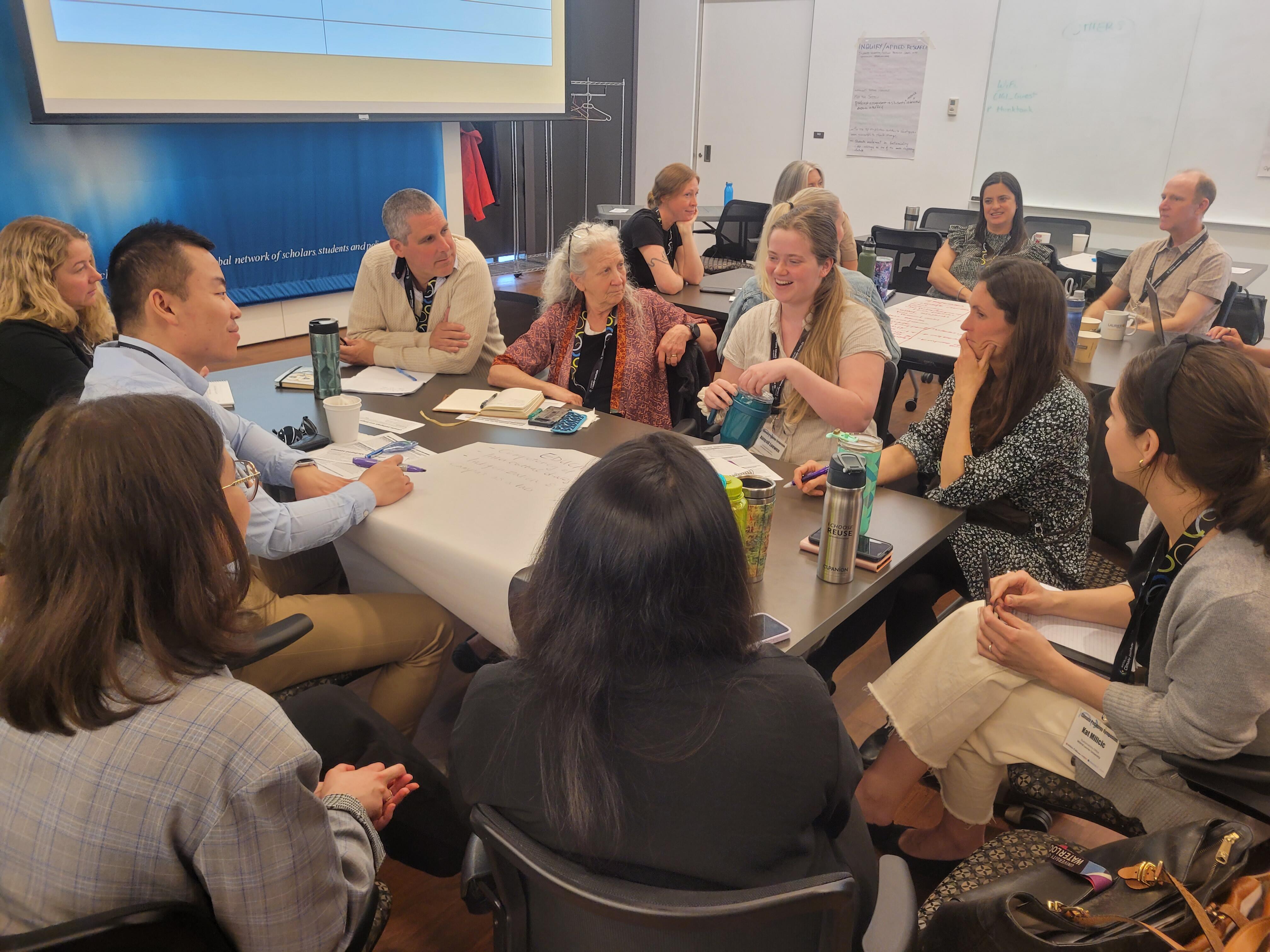Climate action in education was the focus as post-secondary instructors gathered at the Balsillie School of International Affairs in Waterloo for the Climate Pedagogy Symposium on May 15.

Participants share ideas at a break-out workshop at the Climate Pedagogy Symposium.
Laura Matheson, Conestoga sustainability consultant & project manager, co-organized the event which attracted more than 60 participants from Conestoga, the University of Waterloo and Wilfrid Laurier University to discuss advancing climate-related content in various disciplines of instruction, and lay groundwork for future collaboration between the three institutions.
The symposium was hosted by the Waterloo Climate Institute, a hub at the University of Waterloo that brings together over 130 researchers with the goal of elevating and enhancing climate research that empowers business, government and civil society organizations.
“One objective of the event was to bring together a group of educators from diverse disciplines in recognition that climate is relevant not only in environmental education but across all courses and programs,” said Matheson.
Matheson partners with event co-organizer Michele Martin of the Waterloo Climate Institute to lead a working group formed to plan the event comprised of representatives from the three institutions.
Matheson has played a pivotal role in climate action at Conestoga, helping the School of Business to become a United Nations Principles for Responsible Management Education (PRME) signatory ahead of her secondment to the college’s research team where she is leading development of Conestoga’s inaugural Sustainability Action Plan.
"Climate change education (CCE) is important for many reasons. First and foremost, we are living in the time of a climate emergency. Understandably, many students are experiencing anxiety about an uncertain future. Education promotes self-efficacy and gives students hope. It's also true that labour market demand continues to rise in sustainability-related fields, and increasingly sustainability-related competencies are required in all roles,” added Matheson.
The day included break-out workshops with sessions focused on topics ranging from climate science and climate emotions, to pedagogical and learning strategies. Through networking, instructors were also able to shares ideas and strengthen connections.
Conestoga’s participants were chosen from a nomination process and included students, faculty and employees from across the college.
Conestoga’s Patricia Uribe McPherson, a professor in the School of Interdisciplinary Studies, valued the opportunity to collaborate with instructors from local universities, and the comprehensive dialogue on how to integrate sustainability into her teaching.
“Since I do not teach courses that focus on sustainability or environmental causes, I was not sure that I could do this. I walked away with several ideas of how to incorporate climate change-related topics and themes into my courses by way of scenarios, case studies and collaborations with community partners.”
Graduate students were present throughout the day, including three from Conestoga, capturing the ideas, strategies and challenges shared and participating in discussions.
Dr. Lauren Spring, a teaching and learning consultant at Conestoga, commented on the effectiveness of the student involvement, and what it contributed to the event.
“It was wonderful to have so many deeply engaged graduate students involved in the conversations and knowledge-sharing. They brought vitally important perspectives to discussions about what does and doesn't and should happen in the classroom when teaching about climate change,” said Spring, who also co-presented a workshop session at the event.
A report on the symposium proceedings will be shared with attendees over the summer, with the working group meeting to review the post-event survey feedback and determine next steps, which may include forming a tri-institutional working group for CCE and future collaboration for CCE research.
"It was inspiring to see the three institutions come together to share, learn and collaborate for CCE," added Matheson.
“We are looking forward to putting the connections made and the knowledge shared at this event into action.”
Matheson’s work on promoting sustainability and CCE also includes co-leading a Community of Practice for Sustainability at Conestoga, where she’ll also share the proceedings of the symposium.
